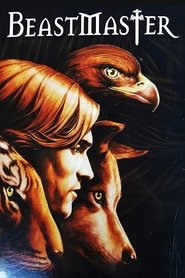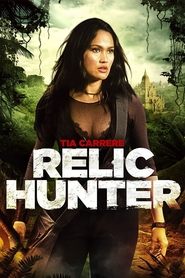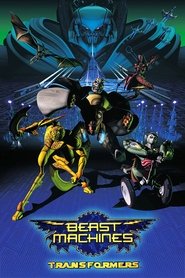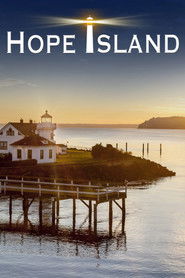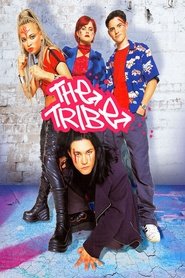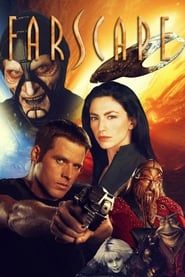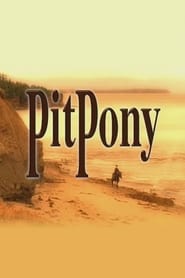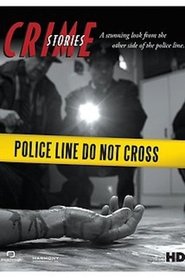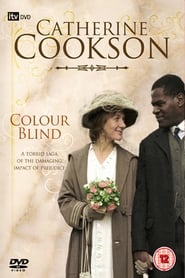New TV Series on Plex - Page 78
-
Enamorada
1999
Enamorada
1999
Enamorada is a 1999 telenovela co-produced by Venevisión International and Fonovideo. It is a remake of the 1988 telenovela Alba Marina. Gaby Espino and René Lavan star as the main protagonists. -
BeastMaster
1999
BeastMaster
1999
star 6.3BeastMaster chronicles the adventures of Dar, the last surviving male of the storied Sula tribe, who is blessed with the ability to communicate telepathically with the animals of his ancient world. Also endowed with the strength, courage and fighting skills of a great warrior, he uses his gifts to defend all living creatures oppressed by the forces of evil. -
Relic Hunter
1999
Relic Hunter
1999
star 6.7Sydney Fox is a professor and globe-trotting "relic hunter" who looks for ancient artifacts to return to museums and/or the descendants of the original owner. She is aided by her linguistic assistant Nigel and occasionally by her somewhat air-headed secretary Claudia. She often ends up battling rival hunters seeking out artifacts for the money. -
Beast Machines: Transformers
1999
star 8.1After the end of the Beast Wars, the Maximals awaken on their home planet of Cybertron and are chased by mindless Vehicons created by Megatron. The Maximals must free the planet from Megatron and restore it to its real way of living. -
Hope Island
1999
Hope Island
1999
star 10Hope Island is an American television show that originally aired on PAX TV in the 1999-2000 season. It was based on Ballykissangel, a popular drama that aired on the BBC One. - Reverend Daniel Cooper arrives on Hope Island to reopen a church that has been abandoned for decades, hoping the quiet assignment will help him move past a personal tragedy. Met with skepticism from the island’s residents—especially innkeeper Alex Stone, who has long turned away from faith—Daniel struggles to find his place. With the help of Alex’s young son Dylan, a lonely boy who becomes his unexpected ally, Daniel begins restoring both the church and his own sense of purpose. As he earns the trust of the island’s quirky community, he must confront the past he tried to escape and discovers the possibility of healing, belonging, and new love. - The series ran for 22 episodes, and focused on the residents of Hope Island, a small island in the Pacific Northwest with a population of 1,998. -
Sonic Underground
1999
Sonic Underground
1999
star 6.8Sonic, Sonia, and Manic are the children of Queen Aleena Hedgehog, the rightful ruler of Mobius, and are pursued relentlessly by Doctor Robotnik and his bumbling bounty hunters sidekicks, Sleet and Dingo. As infants, the siblings were separated and placed in hiding to fulfill a prophecy made by the Oracle of Delphius that the triplets would grow up to find their estranged mother, overthrow Robotnik, and take their places once more as Mobius' rightful rulers. -
Grown Ups
1999
Grown Ups
1999
star 5.2With a lifelong friend, the newly appointed VP of regional distribution at a corrugated box company enters the world of adulthood and responsibility. -
Great Teacher Onizuka
1999
star 8.4A former gang member wants to be Japan's best teacher. When he's hired to supervise a class of hopeless cases, it's his chance to prove himself. -
Grand Designs
1999
Grand Designs
1999
star 7.1British television series which features unusual and often elaborate architectural homebuilding projects. -
The Tribe
1999
The Tribe
1999
star 6.9The Tribe is a New Zealand/British post-apocalyptic fictional TV series primarily aimed at teenagers. It is set in a near-future in which all adults have been wiped out by a deadly virus, leaving the children of the world to fend for themselves. The show's focus is on an unnamed city inhabited by tribes of children and teenagers. It was primarily filmed in and around Wellington, New Zealand. The series was created by Raymond Thompson and Harry Duffin and was developed and produced by the Cloud 9 Screen Entertainment Group in conjunction with the UK's Channel 5. It has aired on over 40 broadcast networks around the world. -
A.D. Police
1999
A.D. Police
1999
star 6.2MegaTokyo 2038: A.D. Police Officer Kenji Sasaki loses another partner to a rabid boomer. A day after he's sent off-duty, he receives a new partner: German cop Hans Kleif. -
Farscape
1999
Farscape
1999
star 7.9A freak accident during an experimental space mission catapults Astronaut John Crichton across a thousand galaxies to an alien battlefield. -
River Cottage
1999
River Cottage
1999
star 10Hugh Fearnley-Whittingstall, celebrity chef, television personality, journalist, food writer, and campaigner on food and environmental issues, leaves London to pursue an ambition of self-sufficiency, growing his own vegetables and raising his own animals in Dorset. -
World's Most Amazing Videos
1999
star 4World's Most Amazing Videos is a reality television series that showcases accidents, disasters, police chases and other extraordinary events that are caught on video camera. These videos normally shown anybody involved in these aforementioned incidents survive nonetheless. Although it is similar in content to the other series Real TV and Maximum Exposure, it takes a more serious tone. Originally, the show appeared on NBC as a timeslot filler program. A new series of episodes of the show were created in 2006 first-run for Spike TV, after a six-year hiatus from the NBC stint. -
Ramsay's Boiling Point
1999
star 7.2Following a dispute with his business partners, Chef Gordon Ramsay walks out of Aubergine and spends the most intense months of his life as he opens his first restaurant in Royal Hospital Road in Chelsea. -
Pit Pony
1999
Pit Pony
1999
star 10Pit Pony is a 1999 CBC television series which tells the story of small-town life in Glace Bay, on the island of Cape Breton, Nova Scotia in 1904. The plot line revolves around the lives of the families of the men and boys who work in the coal mines. -
Tilly Trotter
1999
Tilly Trotter
1999
star 6.5In 1830s rural England, a courageous young girl envied by women for her beauty, lusted after by men, is accused of witchcraft and forced to rise above the prejudice of many people in the community in which she lives. -
Fix and Foxi
1999
Fix and Foxi
1999
star 9.5Fix and Foxi are the likable boys from next door, and everyone would like to be friends with them. In their adventures, they never appear as super heroes but rather as confident, bold and often audacious ten-year-olds. -
Crime Stories
1999
Crime Stories
1999
star 8A respected small-town physician has brutally killed his wife, thus ending a four-year martyrdom from which he could not escape by any other means... -
Colour Blind
1998
Colour Blind
1998
star 6A gritty period drama set in industrial Tyneside during World War I. Life for the McQueen family is turned upside down when daughter Bridget comes home with a black husband.
 Netflix
Netflix
 Amazon Prime Video
Amazon Prime Video
 Apple iTunes
Apple iTunes
 Apple TV Plus
Apple TV Plus
 Disney Plus
Disney Plus
 Google Play Movies
Google Play Movies
 Paramount Plus
Paramount Plus
 Hulu
Hulu
 HBO Max
HBO Max
 YouTube
YouTube
 fuboTV
fuboTV
 Peacock
Peacock
 Peacock Premium
Peacock Premium
 Amazon Video
Amazon Video
 The Roku Channel
The Roku Channel
 AMC+
AMC+
 Kocowa
Kocowa
 Hoopla
Hoopla
 The CW
The CW
 Vudu
Vudu
 Starz
Starz
 Showtime
Showtime
 PBS
PBS
 Pantaflix
Pantaflix
 FXNow
FXNow
 Tubi TV
Tubi TV
 Kanopy
Kanopy
 Comedy Central
Comedy Central
 Crunchyroll
Crunchyroll
 Microsoft Store
Microsoft Store
 Redbox
Redbox
 Sun Nxt
Sun Nxt
 ABC
ABC
 DIRECTV
DIRECTV
 Crackle
Crackle
 Fandor
Fandor
 Plex
Plex

